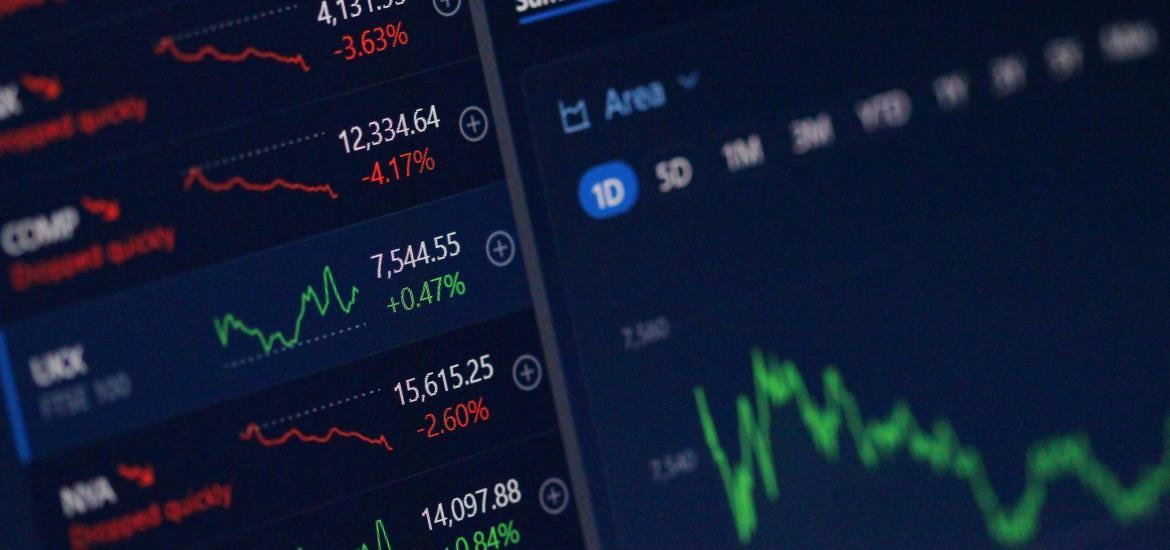
ASCO 2025 movers – bispecifics to the rescue
PD-(L)1 x VEGF developments coinciding with ASCO overshadowed the conference proper.
PD-(L)1 x VEGF developments coinciding with ASCO overshadowed the conference proper.

For biopharma investors the 2025 edition of ASCO will go down as the conference at which PD-(L)1 x VEGF bispecifics overshadowed most other developments. Though the meeting featured much of interest, both on the up and down side, it lacked the wow factor, and two of the biggest share price movements were down to events timed to coincide with ASCO, but not actually presented at the congress.
These were the topline results of ivonescimab's Harmoni trial, toplined on ASCO's first day and received negatively by Summit investors, and Bristol Myers Squibb's huge licensing deal covering BioNTech's rival PD-(L)1 x VEGF bispecific BNT327, unveiled on day four. As for data actually presented at ASCO, perhaps the battle between Merus and Bicara had the biggest market impact.
With Merus releasing most of the ASCO results covering petosemtamab as soon as its abstract went live on 22 May, its stock rose early, and continued to climb over the ASCO weekend, leading to a 50% share price increase in the space of two weeks.
Bicara slumped on data with its rival ficerafusp alfa, and though it fought hard to regain some ground, rising 17% over the weekend as full data were presented at ASCO, overall it was a loser, sitting on a 30% share price decline over the entire period since abstract lift.
Merus was virtually the only notable biotech able to use ASCO to raise significant cash from investors, pricing a $300m equity raise on Wednesday. Still, this fact speaks as much to the general market malaise as it does to the short supply of stock-moving or practice-changing clinical data presented at this year's conference.
Winners of ASCO 2025
| Company | Share price change | Note | |
|---|---|---|---|
| From abstract release* | Over ASCO weekend** | ||
| BioNTech | +16.7% | +15.4% | BNT327 licensed to Bristol Myers Squibb for $1.5bn+ |
| Allogene | +23.9% | +14.4% | ALLO-316 shows 31% cORR in CD70 ≥50% renal cancer |
| Merus | +50.0% | +12.7% | Petosemtamab data hold up versus Bicara |
| Kura | +2.9% | +10.3% | Ziftomenib matches Revuforj, and is filed for approval |
| Immatics | +13.1% | +8.1% | IMA203 update shows cORR 56%, mPFS 6.1mth & mOS 15.9mth in melanoma |
| Astellas | +5.8% | +7.9% | Licensed XNW27011 from Evopoint |
| Protagonist | +11.2% | +7.3% | Verify study of rusfertide presented in plenary |
| Hutchmed | +10.8% | +6.1% | Sachi trial of savolitinib + Tagrisso featured in late-breaker |
| Arcus | +14.2% | +5.5% | Casdatifan + Cabometyx data hold up |
| Cullinan | +13.6% | +3.2% | Rezilient-1 study of zipalertinib |
| BeOne | +5.4% | +2.0% | Early data on BG-C9074 (B7-H4 ADC) & BG-68501 (CDK2 inhibitor) |
| Jazz | +2.3% | +1.9% | Zepzelca + Tecentriq in ph3 Imforte trial |
| Dizal | +7.8% | -1.4% | Data with BTK/Lyn inhibitor DZD8586 |
| Instil Bio | +21.5% | -1.5% | Beneficiary of 3SBio/Pfizer & BioNTech/BMS deals |
| Arvinas | +8.2% | -6.7% | Vepdegestrant matches other SERDs |
Notes: *3 Jun close vs 22 May close; **3 Jun close vs 29 May close.
The biggest ASCO-related windfall was the $1.5bn, plus the promise of another $2bn by the end of 2028, BioNTech got from Bristol for a 50% stake in BNT327. This inspired deal-making, over an asset acquired for just $800m last November, helped BioNTech stock put on over 15%.
This, and the Harmoni data on which Summit shares fell 20%, naturally caused an upsurge in interest over ASCO presentations covering PD-(L)1 x VEGF bispecifics, including a poster on 3SBio's SSGJ-707, and another on Huabo Biopharm's sotiburafusp alfa. 3SBio stock didn't move appreciably over ASCO, having risen 32% when Pfizer paid $1.25bn for ex-China rights to SSGJ-707 on 20 May.
A company that did rise was Instil Bio, which owns a PD-L1 x VEGF trap that appears quite similar to sotiburafusp alfa, but which like ivonescimab didn't have an ASCO presence. There was also heightened interest in an ASCO presentation on BNT327 itself, in mesothelioma, a new potential use for these bispecific MAbs.
Losers of ASCO 2025
| Company | Share price change | Note | |
|---|---|---|---|
| From abstract release* | Over ASCO weekend** | ||
| Xilio | -24.6% | -29.9% | Vilastobart + Tecentriq in MSS colorectal cancer |
| Verastem | -21.1% | -24.1% | GenFleet-partnered on/off KRAS G12D inhibitor GFH375/VS-7375 |
| Summit | -20.0% | -21.3% | Hamoni trial of ivonescimab toplined |
| Innate Bio | -6.8% | -19.0% | Early data with γδ T cell project INB-200 |
| Corcept | -8.6% | -10.5% | Rosella trial of relacorilant in late-breakers |
| Daiichi Sankyo | -1.6% | -4.0% | Enhertu impresses, patritumab-dxd disappoints |
| Zai Lab | -4.2% | -0.6% | Amgen’s Imdelltra overshadow zocilurtatug pelitecan |
| 3SBio | -1.4% | -0.3% | Poster on SSGJ-707, earlier licensed to Pfizer for $1.25bn |
| Mersana | -10.5% | 0.0% | Additional data with emiltatug ledadotin |
| Bicara | -29.7% | +16.6% | Petosemtamab still looks better than ficerafusp alfa |
Notes: *3 Jun close vs 22 May close; **3 Jun close vs 29 May close.
It can't be denied that some of the ASCO late-breaking data, especially those at the plenary, might in future change clinical practice, but as far as biotech goes the biggest beneficiary here was probably Protagonist Therapeutics, with the Takeda-partnered rusfertide in polycythemia vera.
It was another notable ASCO for AstraZeneca, which scored a double plenary for the second year running, and which at a pre-ASCO event opined that a third trial, Enhertu's Destiny-Breast09, was worthy of a third plenary spot had it been submitted earlier. Still, it's difficult to ascribe specifically to ASCO any share price movement for a company of Astra's market cap.
On the down side, it's also hard to see a decline in Merck & Co's valuation, though that big pharma group had a very poor ASCO. Toxicity hangs over zilovertamab vedotin and patritumab deruxtecan, with full data on the latter showing why that ADC recently had its US filing pulled, and leaving Merck to play up ASCO data from Ascent-04, a Keytruda combo trial actually run by Gilead.
A notable ASCO revelation was that Astra had decided against licensing patri-dxd from Daiichi Sankyo, its partner for Enhertu, before Daiichi licensed it to Merck. Daiichi shares fell 4% over the ASCO weekend.
All of ApexOnco's coverage of ASCO 2025, including previews, is available to read for free.
3406













